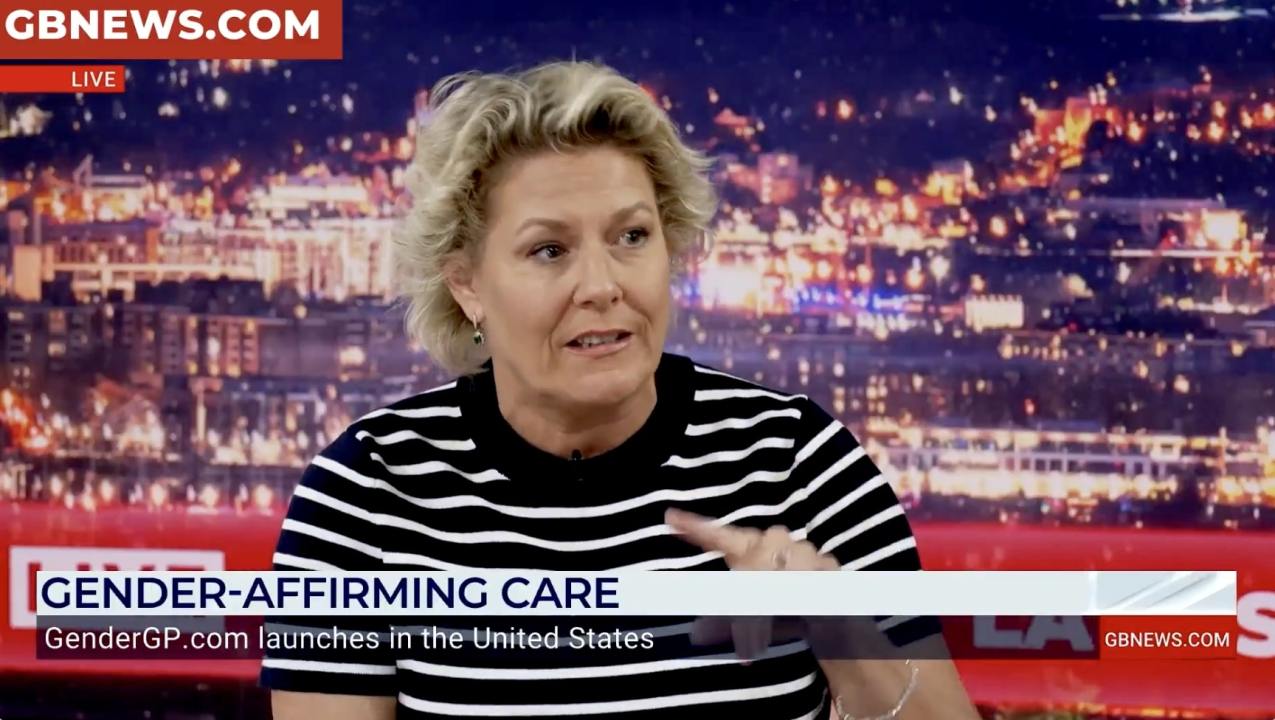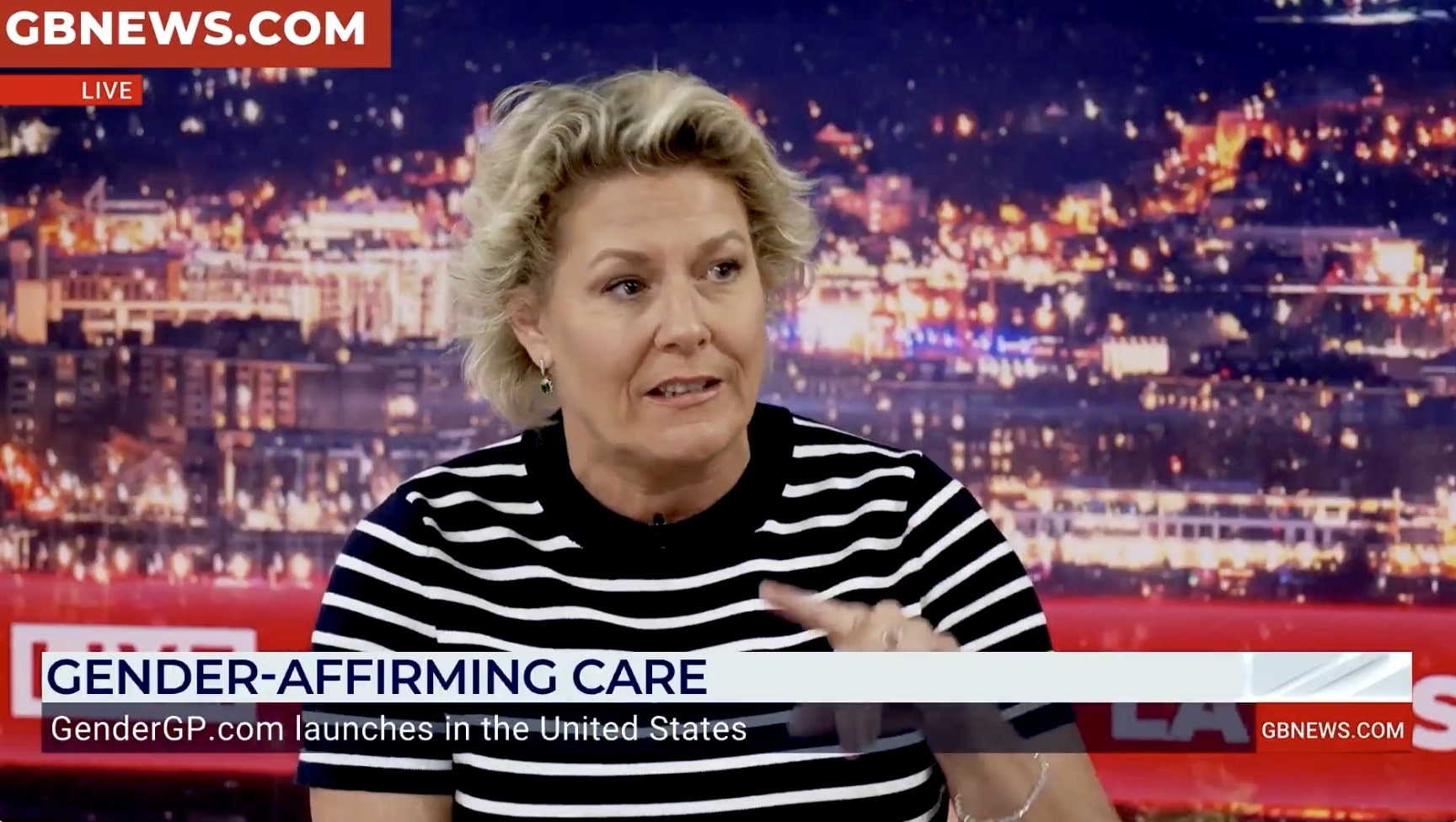Ben Leo’s interview with Helen Webberley is a chilling dramatisation of what happens when ideology meets reality – and ideology persists. The GB News host questioned Webberley, founder of telemedicine clinic GenderGP, on the organisation’s willingness to prescribe puberty-blocking drugs to minors and the reported side effects of these pharmaceuticals, which have been said to limit sexual function in adulthood.
The exchanges are chilling because as Leo describes the risks of this treatment pathway, Webberley leaps from pedantry to dismissal to denial, and at no point is there even a hint of self-reflection or contrition. The facts are devastating for Webberley’s brand of medicine, but still no match for her ideological zeal.
Leo gives Webberley an example: the other day, his two-year-old son announced that he was going to have a baby. Leo told him that boys can’t have babies, only girls can, and so Zack said that he now wanted to be a girl. The next day, Leo added, the boy informed his father that he was going to be Spider-Man. For Leo, this was an object lesson in the dangers of ‘affirming’ gender medicine. A two-year-old can’t possibly understand the concepts of sex and gender and, rather than seize on an innocent remark as evidence of dysphoria, a responsible parent should appreciate this, teach his child the truth, and move on.
Webberley saw something very different. She told Leo: ‘I wouldn’t have said, “Zack you’re a boy and boys can’t have babies,” because that’s absolutely not true.’ It was ‘sad’ that the presenter had responded the way he did and she ‘felt sorry’ for Zack. ‘Why can’t we just let children explore,’ Webberley pleaded. When the interviewer raised the not unreasonable point that, in fact, males can’t have babies, Webberley cited the example of ‘transgender males’, the term gender identity activists use to refer to women who believe themselves to be men. Leo interjected with the forbidden W-word and was told he was being ‘extremely disrespectful’.
Most gender activists are careful not to be drawn on the matter of puberty blockers, going as it does to child safeguarding, consent and the physiological effects of these drugs on young patients. Webberley displays no such reluctance. Pushed on whether nine-year-old girls should be prescribed cross-sex hormones – this is the age at which some females enter puberty – Webberley said it could happen even younger, at eight, and stated: ‘The best time for puberty blockers is when puberty starts.’
The disproportionate number of young patients presenting with both a trans identity and conditions such as autism gives many pause for reflection, but Webberley comes at the issue from another angle. As a doctor, she has considered this correlation but insisted that autism should not prevent a transgender person from receiving ‘care’.
Gender ideology has Helen Webberley in its grip. We cannot save her
The reason for the interview was GenderGP’s expansion to the United States, where policy remains far behind the UK in addressing the shortcomings of gender medicine and better regulating its services. More vulnerable people will have to suffer before the American political mainstream is able to dislodge ‘affirming’ gender medicine for juveniles from its place in the culture wars as a practice embraced by liberals simply because it is denounced by Donald Trump. Until that time, opponents of the reckless prescription of life-altering drugs to confused, vulnerable children – confused, vulnerable people of any age, quite frankly – should work at the state level to build a coalition for prohibition of the supply of puberty blockers to under-18s and for robust oversight and regulation of hormone prescription in the case of adults.
Closer to home, these matters are more straightforward. We have had the Cass review, the closure of Tavistock, the Supreme Court ruling on the meaning of the Equality Act. There is no excuse for allowing gender identity ideology to continue to exercise sway in medicine or elsewhere. The case for banning private gender medicine for children is strong and its role in the treatment of vulnerable adults should be subject to further legislative limits. Gender ideology has Helen Webberley in its grip. We cannot save her. We can, should and must save patients, and especially minors, from medical pathways steered by an ideology so averse to reality that it will wreak harm in the name of being kind.









Comments